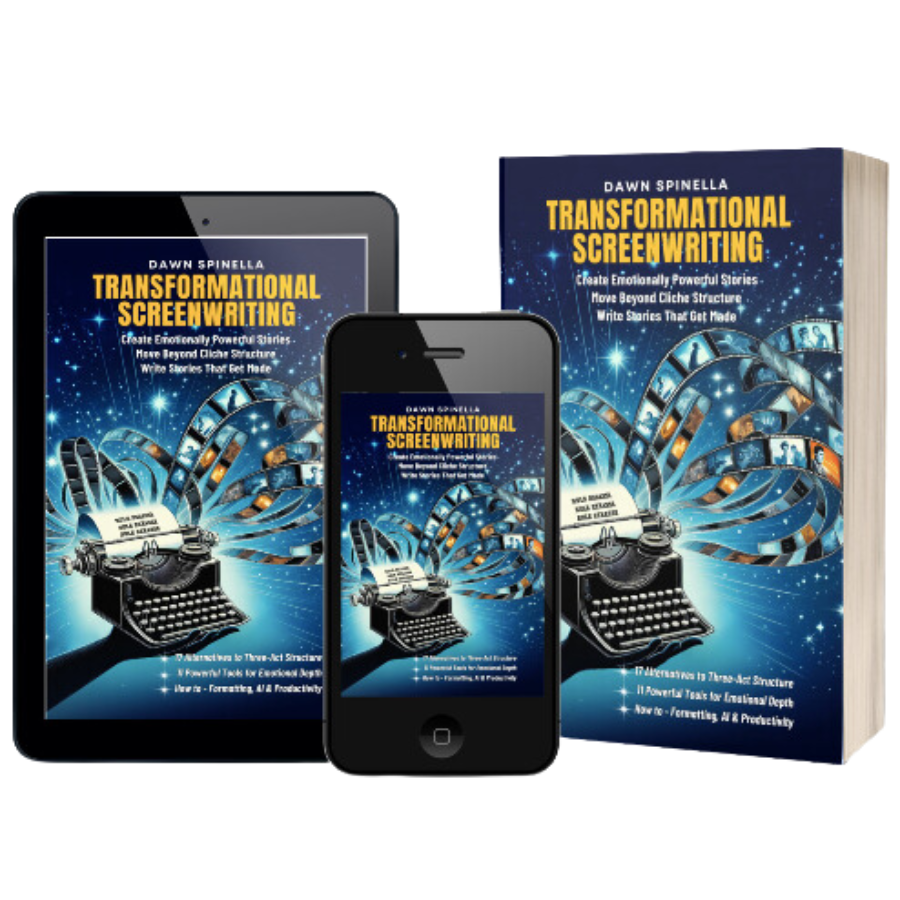Filmmaking is not just an art form; it’s a passion that has the potential to evolve into a full-fledged career. Whether you’re just starting out or have been dabbling in independent films for a while, turning your filmmaking passion into a sustainable career requires dedication, strategic planning, and a deep understanding of the industry. Here are five actionable steps that can help you achieve a thriving, sustainable career in indie filmmaking.
Step 1: Build Your Craft with Consistency and Passion
To turn filmmaking into a career, it’s essential to invest time in mastering your craft. This involves not only learning technical skills like camera work, lighting, and sound design but also refining your storytelling abilities. Take the time to:
- Study Film Theory: Understanding film theory, storytelling structures, and visual language is vital. There are countless books, online courses, and workshops designed to teach you the basics of filmmaking, from narrative construction to pacing. Films like Citizen Kane and Pulp Fiction provide valuable lessons in visual storytelling that can inspire your work.
- Work on Projects Regularly: The more you create, the better you’ll become. Even if you can’t secure big projects immediately, work on smaller-scale films, short films, or personal projects. This will allow you to develop your skills, explore different genres, and build a diverse portfolio that showcases your growth as a filmmaker.
- Seek Feedback: Don’t be afraid of constructive criticism. Getting feedback from experienced filmmakers or peers can provide valuable insights to refine your work and help you grow. Consider joining online communities or local film groups where you can share your work and receive input from others.
Building your craft isn’t about perfection from the start—it’s about consistent growth. The more time and effort you put into developing your filmmaking skills, the better equipped you’ll be to navigate the industry with confidence.
Step 2: Network and Build Relationships with Other Filmmakers
In the world of indie filmmaking, networking plays a crucial role in career advancement. Building relationships with fellow filmmakers, producers, screenwriters, and even actors can open doors to new opportunities. Here’s how to do it:
- Attend Film Festivals: Participating in film festivals is an excellent way to meet industry professionals, learn about new trends, and showcase your work. Even if your film isn’t featured, simply attending can provide valuable networking opportunities. Events like Sundance and South by Southwest (SXSW) bring together filmmakers from around the world, creating a perfect environment to foster new relationships.
- Collaborate with Others: Filmmaking is a team effort. Collaborating with other creators helps you expand your skill set, gain experience, and foster long-term professional relationships. Whether it’s co-directing, working with a talented cinematographer, or writing a script with a fellow filmmaker, collaboration strengthens your network and helps you grow as a versatile filmmaker.
- Utilize Social Media: Platforms like LinkedIn, Instagram, and Twitter are great tools for connecting with other filmmakers. By sharing your work and engaging with others in the industry, you can gradually build a supportive network. Use Instagram to showcase your behind-the-scenes work, or share filmmaking tips and tutorials on YouTube to engage with a larger audience.
Networking isn’t just about collecting contacts—it’s about building meaningful relationships with people who share your passion and vision. The stronger your professional network, the more opportunities you’ll have to collaborate on exciting projects.
Step 3: Diversify Your Skills and Stay Versatile
While you may have a particular passion for one area of filmmaking (e.g., directing or writing), it’s important to diversify your skill set. This allows you to take on a variety of roles and open up more career opportunities. Here’s what you can do:
- Learn Other Filmmaking Roles: Mastering other aspects of filmmaking such as editing, cinematography, sound design, or production management can make you more adaptable. This versatility can help you find work when opportunities in your preferred role aren’t available. As an example, if you’re primarily a director but also know how to edit, you’ll be able to offer valuable contributions to post-production, making you a more sought-after collaborator.
- Stay Current with Technology: The filmmaking industry is constantly evolving, with new tools and technology emerging all the time. Stay updated with the latest cameras, editing software, and filmmaking trends to remain competitive in the job market. Familiarize yourself with popular software like Adobe Premiere Pro or Final Cut Pro, as well as newer editing platforms that are shaping the industry.
- Offer Freelance Services: Even if you’re passionate about one particular area, consider offering freelance services in other aspects of filmmaking. This will keep you financially afloat while you pursue larger projects. By working as a freelance editor, cinematographer, or sound designer, you can diversify your income streams and gain valuable experience in a variety of filmmaking roles.
By diversifying your skills, you become a more well-rounded filmmaker who can contribute to various aspects of a project, which increases your employability and career stability.
Step 4: Create a Strong Personal Brand
In the competitive world of filmmaking, it’s crucial to stand out from the crowd. One of the best ways to do this is by creating a strong personal brand. Your personal brand should reflect your unique style, values, and approach to filmmaking. Here are some tips to help you build your brand:
- Define Your Niche: What makes your work stand out? Do you focus on certain genres or themes? Define your niche and use it as a way to attract your target audience. For example, if you specialize in horror films with deep psychological elements, make that the cornerstone of your personal brand.
- Maintain a Professional Online Presence: Create a professional website and keep your social media accounts updated with your latest work. This will make it easier for potential collaborators and employers to find and connect with you. Make sure your online profiles showcase not only your work but also your personality and vision as a filmmaker.
- Be Consistent: Consistency is key when it comes to building a personal brand. Make sure your content reflects your style and values, and keep your messaging clear and coherent across all platforms. Whether you’re posting on social media or showcasing your work on your website, your personal brand should remain consistent and professional.
A strong personal brand makes it easier for others to recognize your work, your values, and what you stand for as a filmmaker, helping you attract the right opportunities.
Step 5: Monetize Your Passion Through Multiple Streams of Income
To build a sustainable career in filmmaking, it’s essential to have multiple income streams. Relying solely on one source of income—like project-based work—can make it difficult to maintain financial stability. Here are some ways to diversify your income:
- Freelance Filmmaking: Offer your services to other filmmakers, businesses, or content creators. Freelance work can include everything from editing and shooting to production assistance. By offering your skills to others, you gain experience, build your portfolio, and expand your network, all while earning money.
- Crowdfunding and Grants: Many independent filmmakers use crowdfunding platforms like Kickstarter or Indiegogo to fund their projects. You can also apply for grants offered by various film organizations and foundations. These funding sources can provide you with the financial resources needed to bring your vision to life.
- Selling Your Work: Platforms like Vimeo On Demand and YouTube allow filmmakers to sell their films directly to audiences, providing a revenue stream. Additionally, you can explore licensing opportunities where your work is featured in commercials, TV shows, or movies. Licensing your content allows you to generate passive income and expand your reach to larger audiences.
Having multiple streams of income allows you to maintain financial stability while continuing to work on your filmmaking projects. This way, you can reinvest in your career and create more content.
Turning your passion for filmmaking into a sustainable career is entirely possible, but it requires commitment, continuous learning, and strategic planning. By building your craft, networking with industry professionals, diversifying your skill set, creating a strong personal brand, and monetizing your work, you can lay the foundation for a successful filmmaking career. Remember, the road to success may be challenging, but with perseverance and dedication, you can turn your passion for filmmaking into a rewarding and sustainable career.
Transformational Screenwriting

As you work toward building a sustainable filmmaking career, one of the most valuable investments you can make is in the quality of your storytelling. Transformational Screenwriting offers essential strategies and tools that will help you craft scripts that resonate deeply with both audiences and industry professionals. By focusing on emotional depth, character development, and high-impact narratives, this book provides filmmakers with a roadmap for creating not just films, but transformative experiences. Whether you’re starting with short films or planning feature-length projects, mastering the art of transformational screenwriting will significantly elevate your work and help you stand out in the competitive world of indie filmmaking.
🎥 Ready to take your screenwriting to the next level?
Grab your copy of Transformational Screenwriting today and start crafting stories that make an impact.

